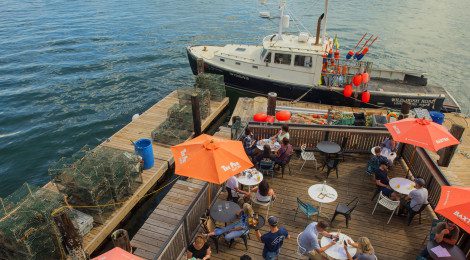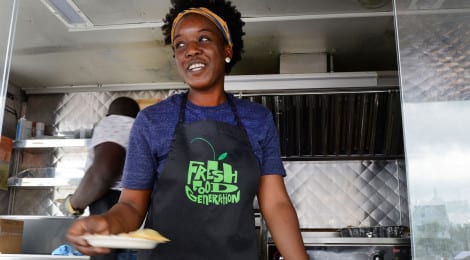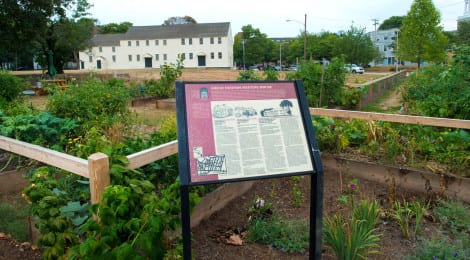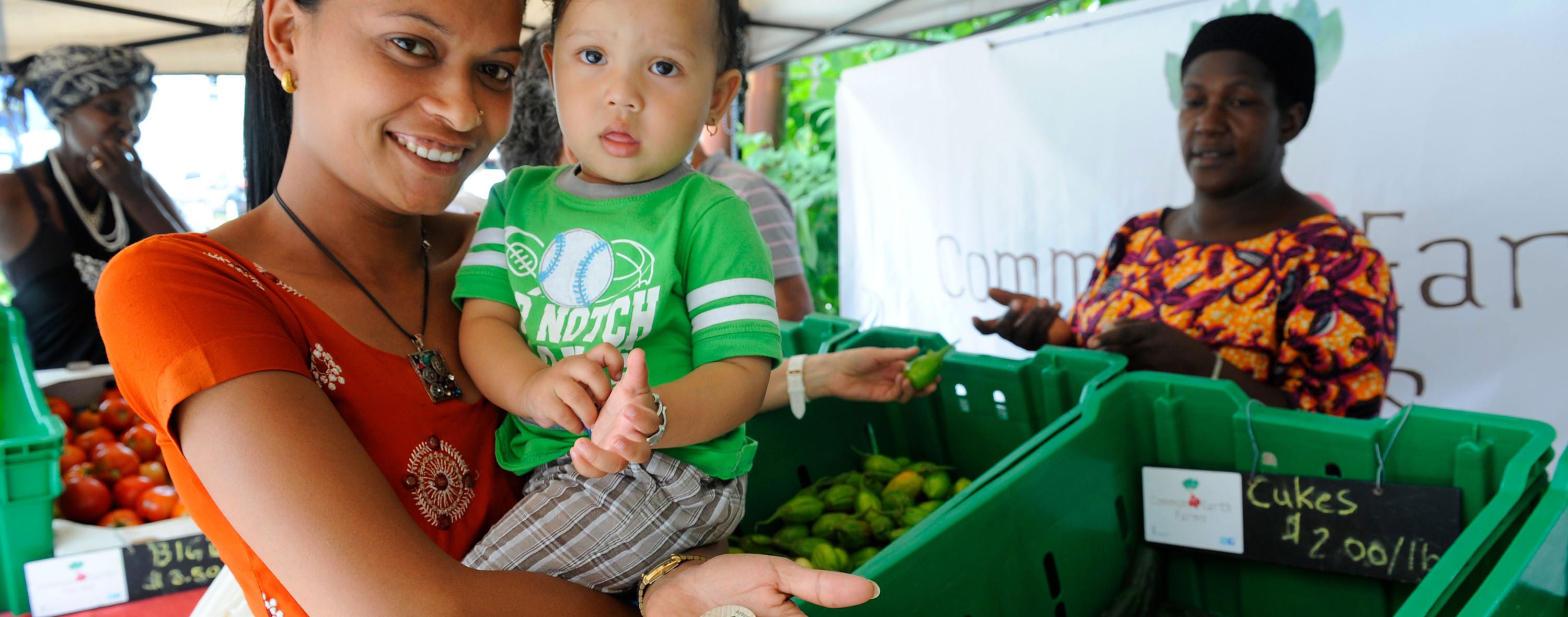
Grantee Profile
Wholesome Wave
Supporting local farms and farmers while making healthy food more accessible.
Anna Papp works part time in Hartford as a professional driver, and takes classes toward a new credential she hopes will land her a full time job. Until then, she relies on food stamps to make ends meet.
Anna also struggles with Type 2 diabetes, so fresh food and healthy eating are important to her.
“A big portion of my diet is fruits and vegetables. I control my diabetes by controlling my diet,” she says. “When I go grocery shopping, I am not just looking at something to eat, I am looking at medication in my shopping cart.”
Fortunately, Anna shops at the farmers market at Billings Forge, a participant in the Double Value Coupon Program from the Bridgeport-based national nonprofit Wholesome Wave. The program doubles the value of food stamps, allowing Supplemental Nutritional Assistance Program (SNAP) customers and others who receive federal nutrition benefits to buy twice as much at the market.
“I first went to Billings Forge because I love shopping at the market,” she says. “I know a lot of the growers, and they handle organic food. I love getting my greens, organic eggs and meat from there.
“The meat guys there have all natural meats. There are two guys at the market that sell meat, and all of their meat tastes so much better,” she adds.
The Double Value Coupon Program, supported by the Henry P. Kendall Foundation, connects the needs of less-well-to-do populations with the needs of family farmers — and in turn the needs of every American affected by our highly industrialized form of agriculture.
The federal government spends about $80 billion each year on food stamps. Gus Schumacher, Wholesome Wave’s executive vice president of policy and co-founder, sees an opportunity to connect low-income people, healthy food, and family farmers.
“We recognize that healthy food must be both accessible and affordable,” Schumacher says. “When food is fresh and healthy and local, people — regardless of income — are really interested.”
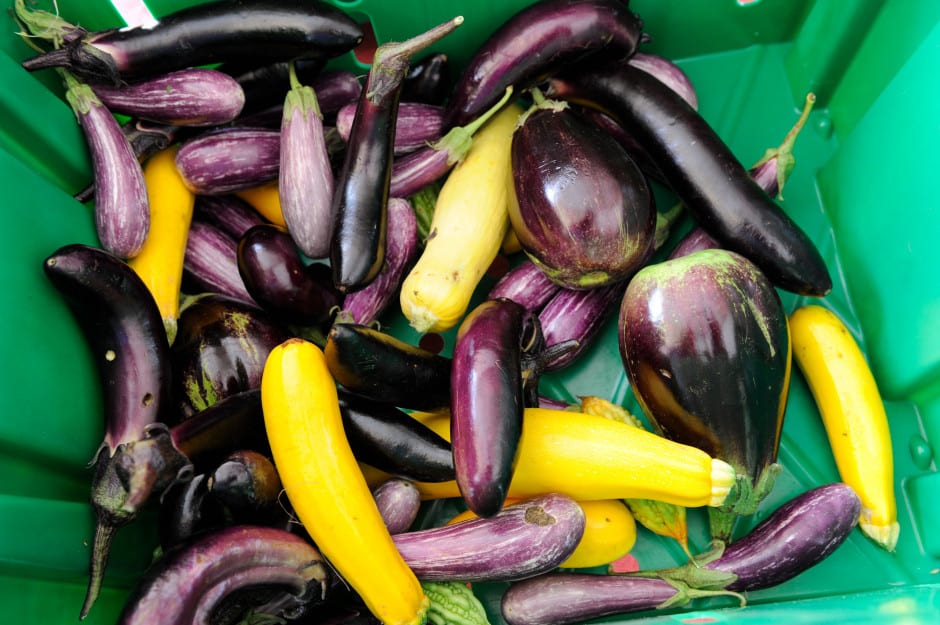
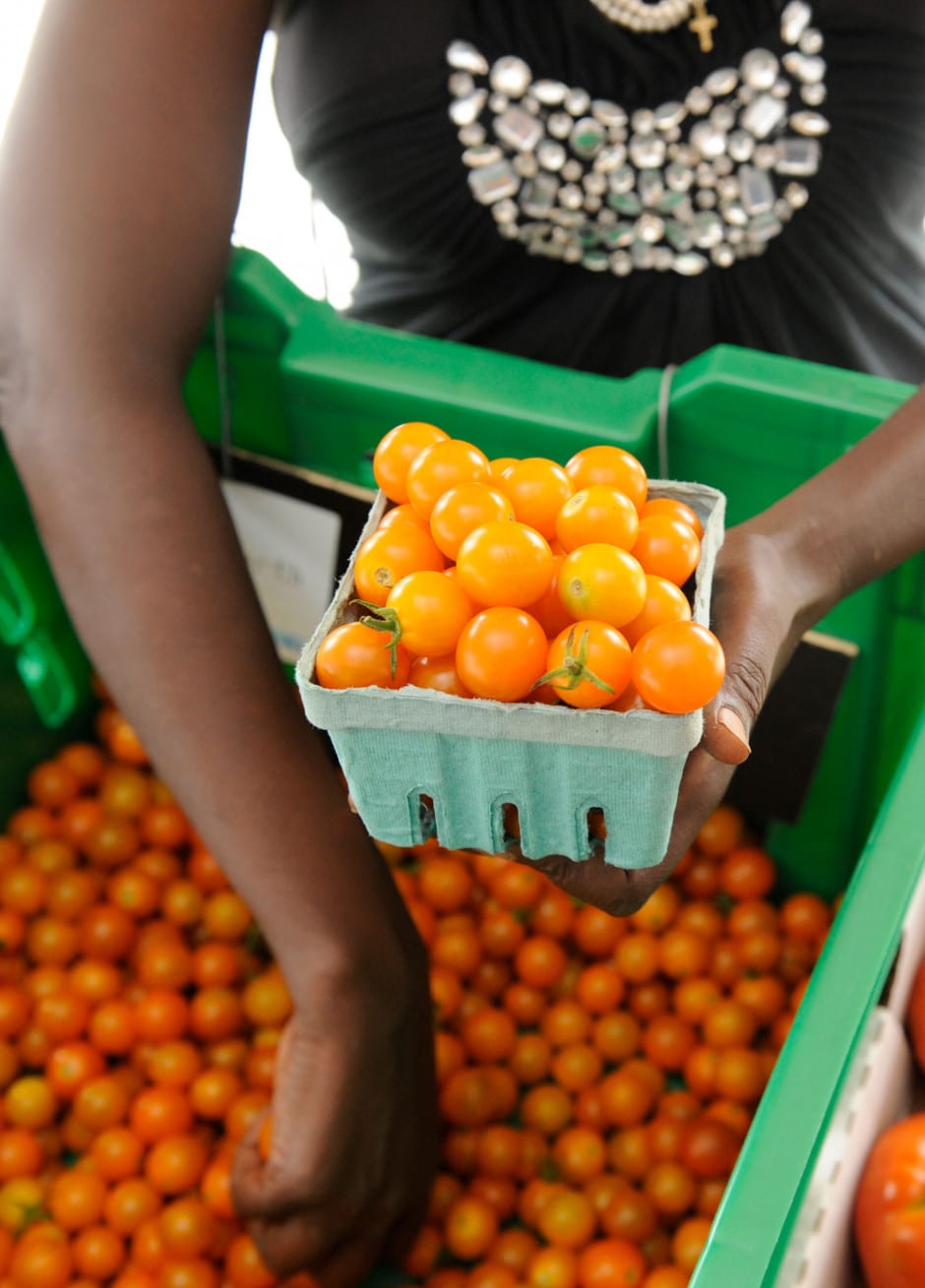
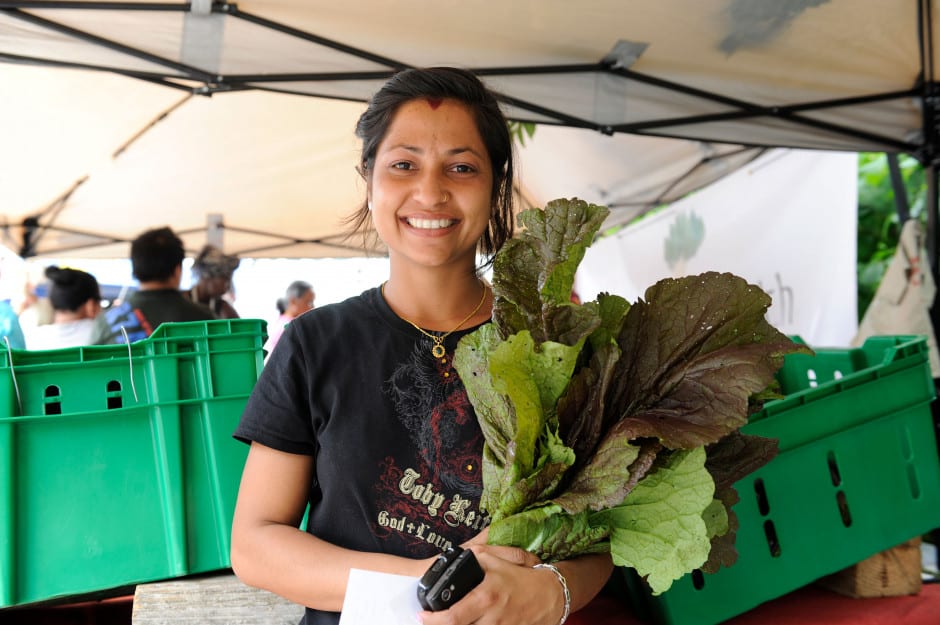
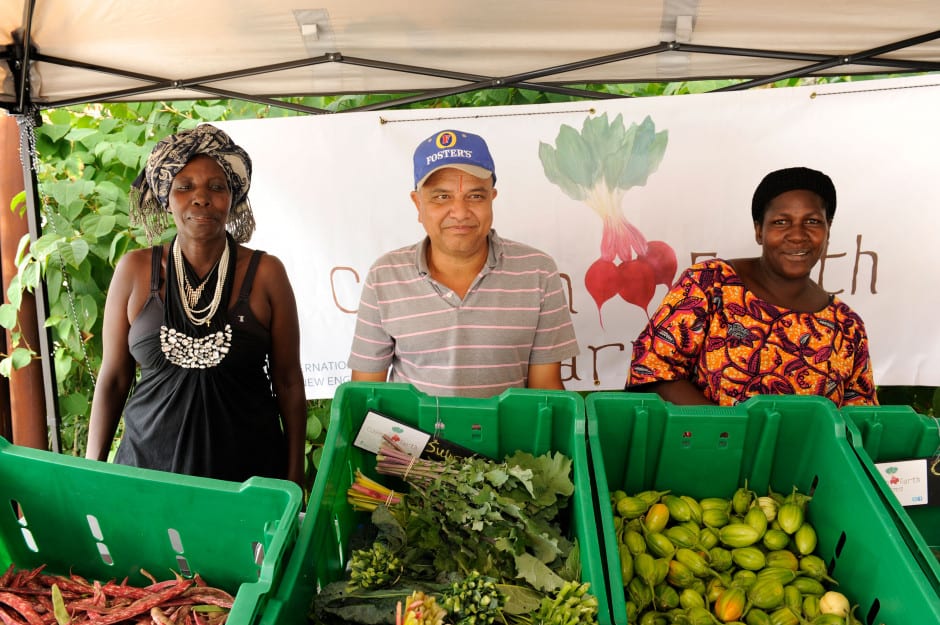
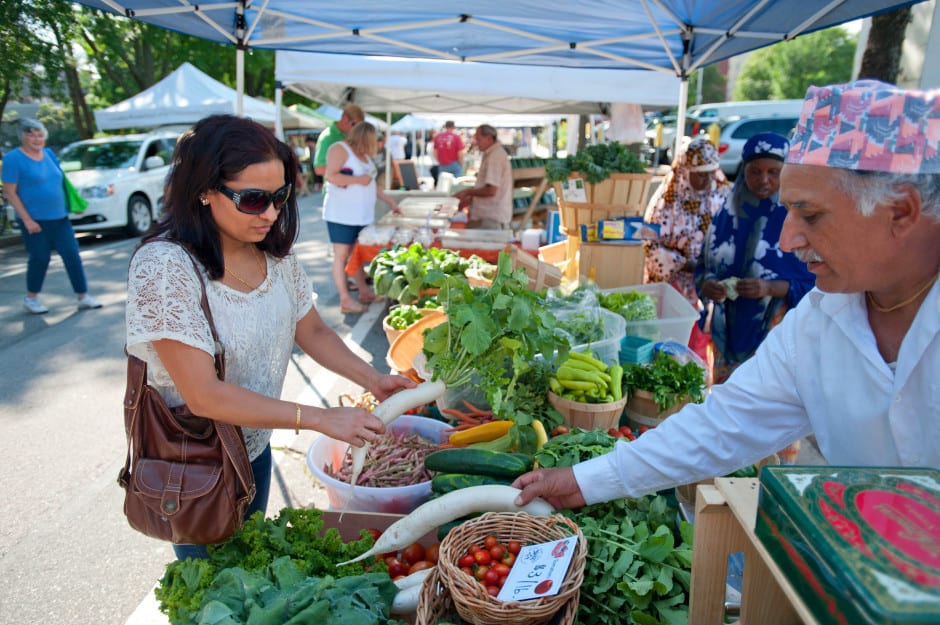
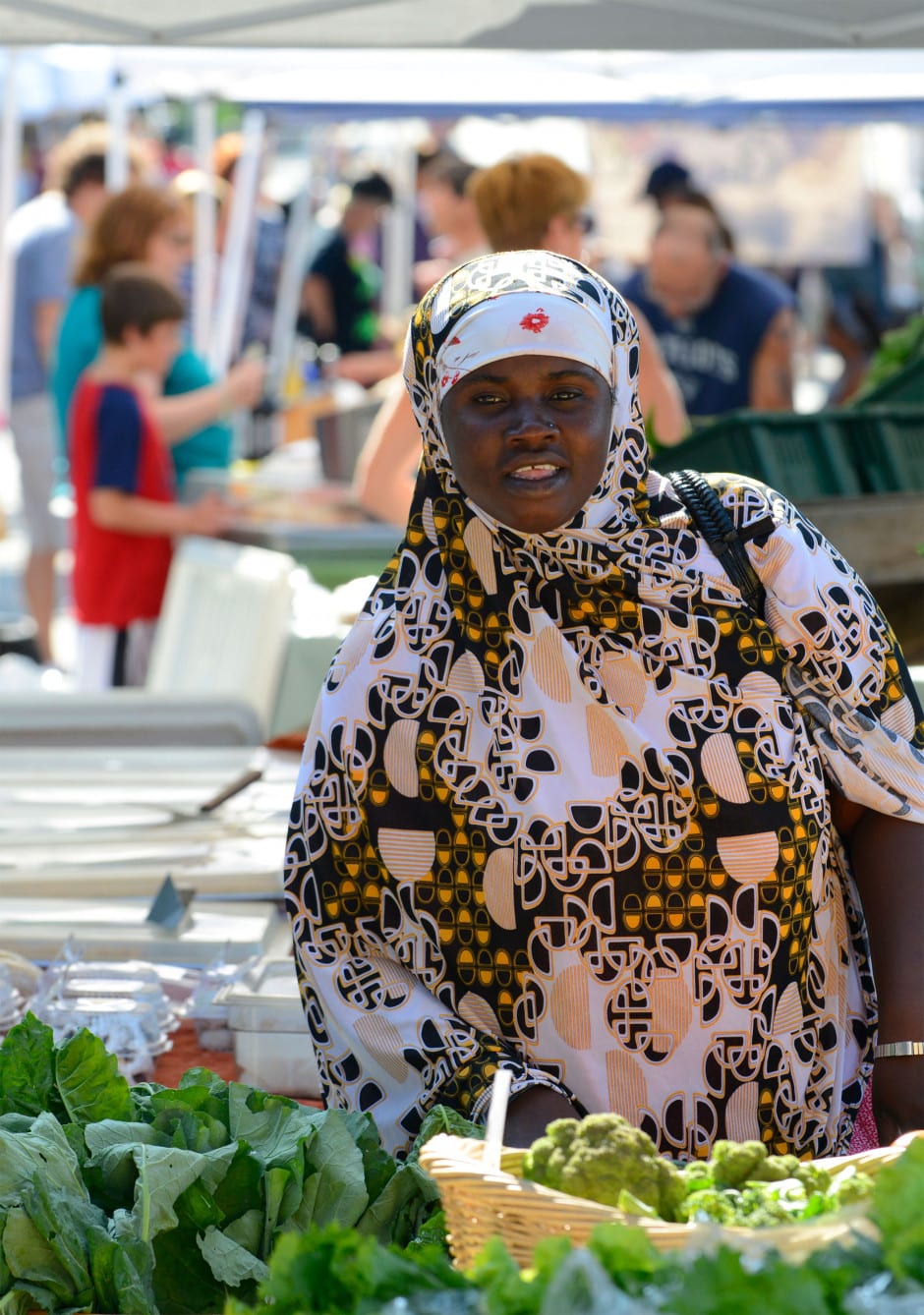
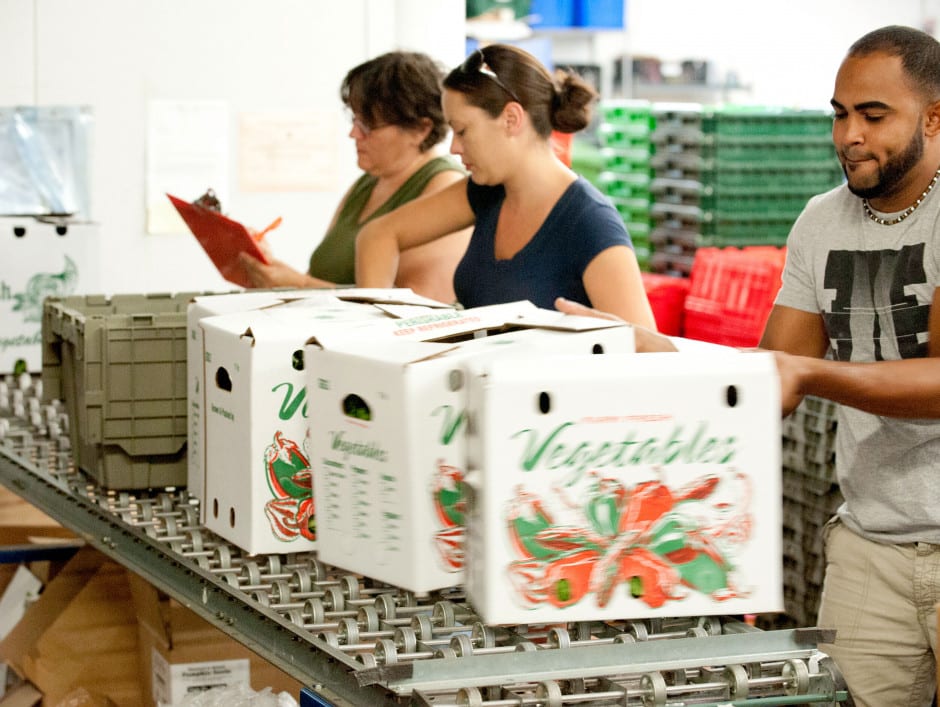
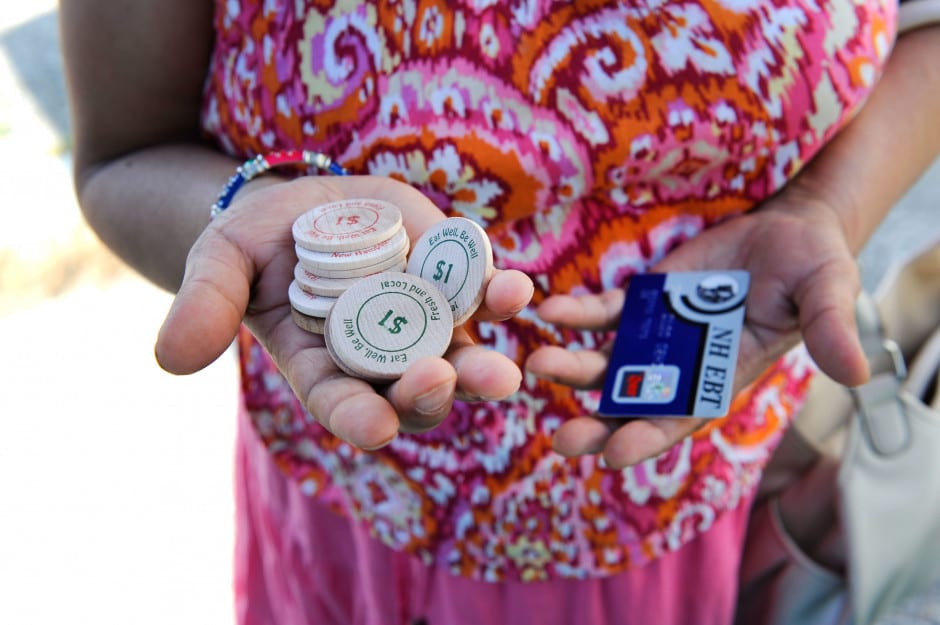
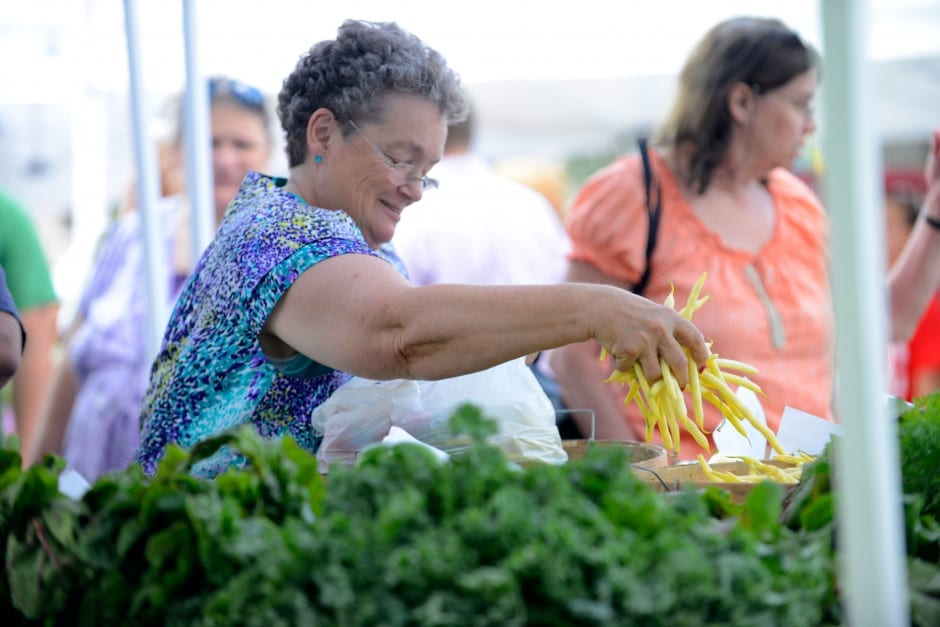
Wholesome Wave has made a point of working in what Schumacher calls “shifting sand neighborhoods,” where people are often poor and public space is available to set up a farmer market or even a simple food stand. Wholesome Wave provides training and technical support so farmers can process food stamps and other federal nutrition benefits.
“We’re seeing people pouring in our markets,” he adds. “Our data shows that people of lower income are coming for fresh, healthy food but also want to support local farmers. Along the way, they’re establishing relationships with local farmers.”
The Double Value Coupon Program is just one way Wholesome Wave supports local farms while making healthy food more accessible. The organization’s Fruit and Vegetable Prescription Program allows physicians to prescribe healthy fresh fruits and vegetables to overweight and obese children and pregnant women. These prescriptions can then be redeemed weekly for fresh fruits and vegetables at participating farmers markets.
“The farms serve as a kind of pharmacy,” Schumacher says, dispensing preventive medicine and vitamins in the form of food to people who need them most.
A study of the program’s first year in Maine, Rhode Island and California showed remarkable if preliminary progress. More than half of the people receiving fruit and vegetable prescriptions visited a farmers market for the first time, and nearly 4 in 5 participants said the program was important to them. Most remarkably, nearly 4 in 10 of the participating children reported a reduction in their body mass index (BMI), a key indicator of obesity.
Wholesome Wave has taken these and other programs national, operating in 28 states and the District of Columbia. It has forged partnerships with more than 60 local groups working in more than 300 farm-to-retail venues.
Learn more: Wholesome Wave
We recognize that healthy food must be both accessible and affordable. When food is fresh and healthy and local, people — regardless of income — are really interested.
